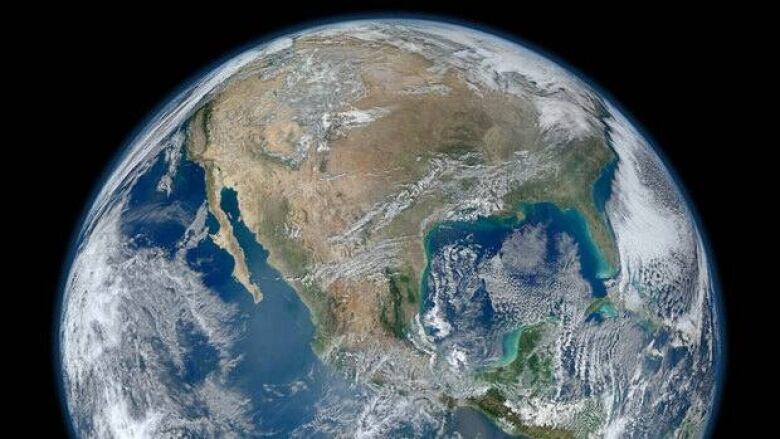WWF report criticizes Canada's ecological footprint

Canada has the world's 8th largest ecological footprint per capita, according toWWF's Living Planet Report 2012, which was released on Tuesday.
If the entire world lived like Canadians do, it would take 3.5 Earths to support the demand, the report says.
Biggest ecological footprints per capita
- Qatar.
- Kuwait.
- United Arab Emirates.
- Denmark.
- United States of America.
- Belgium.
- Australia.
- Canada.
- Netherlands.
- Ireland.
"More than half of Canadas total footprint is a result of its carbon footprint, derived predominately from fossil fuel use,"said the report, which the WWF releases every two years.
The report tracks the health of the planet's ecosystems over several decades, as well as human demand on resources, with the help of the Zoological Society of London and the Global Footprint Network.
A study of 2,688 mammal, bird, reptile, amphibian and fish species finds that biodiversity dropped by about 30 per cent worldwide between 1970 and 2008, the report says.
That was mostly due to species in the tropics, which saw a 60 per cent decline. Biodiversity in temperate climates actually grew about 30 per cent.
The reportalso warnsthat global demand on natural resources has doubled since 1966, and that "high-income" countries have a footprint five times greater than low-income countries.
"Natural capital biodiversity, ecosystems and ecosystem servicesmust be preserved and, where necessary, restored as the foundation of human economies and societies," the WWF urges. "Placing greater economic value on the goods and services provided by nature will help secure long-term economic and ecosystem health."
Gerald Butts,head of WWF Canada, says the country's vast natural resources will be lost for future generations if we don't reduce our demands on the planet.
Canada has an opportunity as a resource-rich country to protect the future by valuing the natural capital that is at the core of its economy and identity, he said.
With files from The Canadian Press












_(720p).jpg)


 OFFICIAL HD MUSIC VIDEO.jpg)
.jpg)



























































































